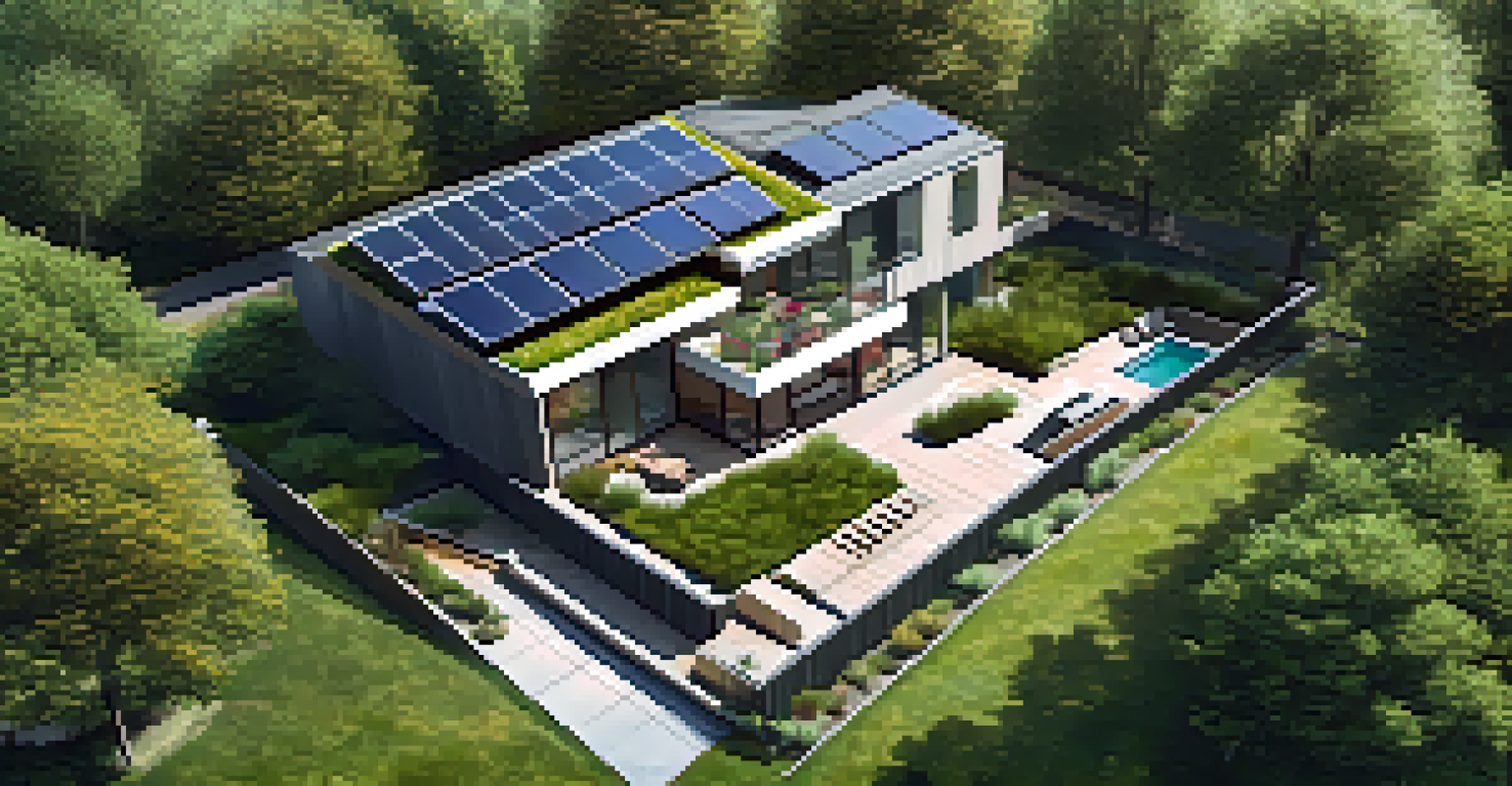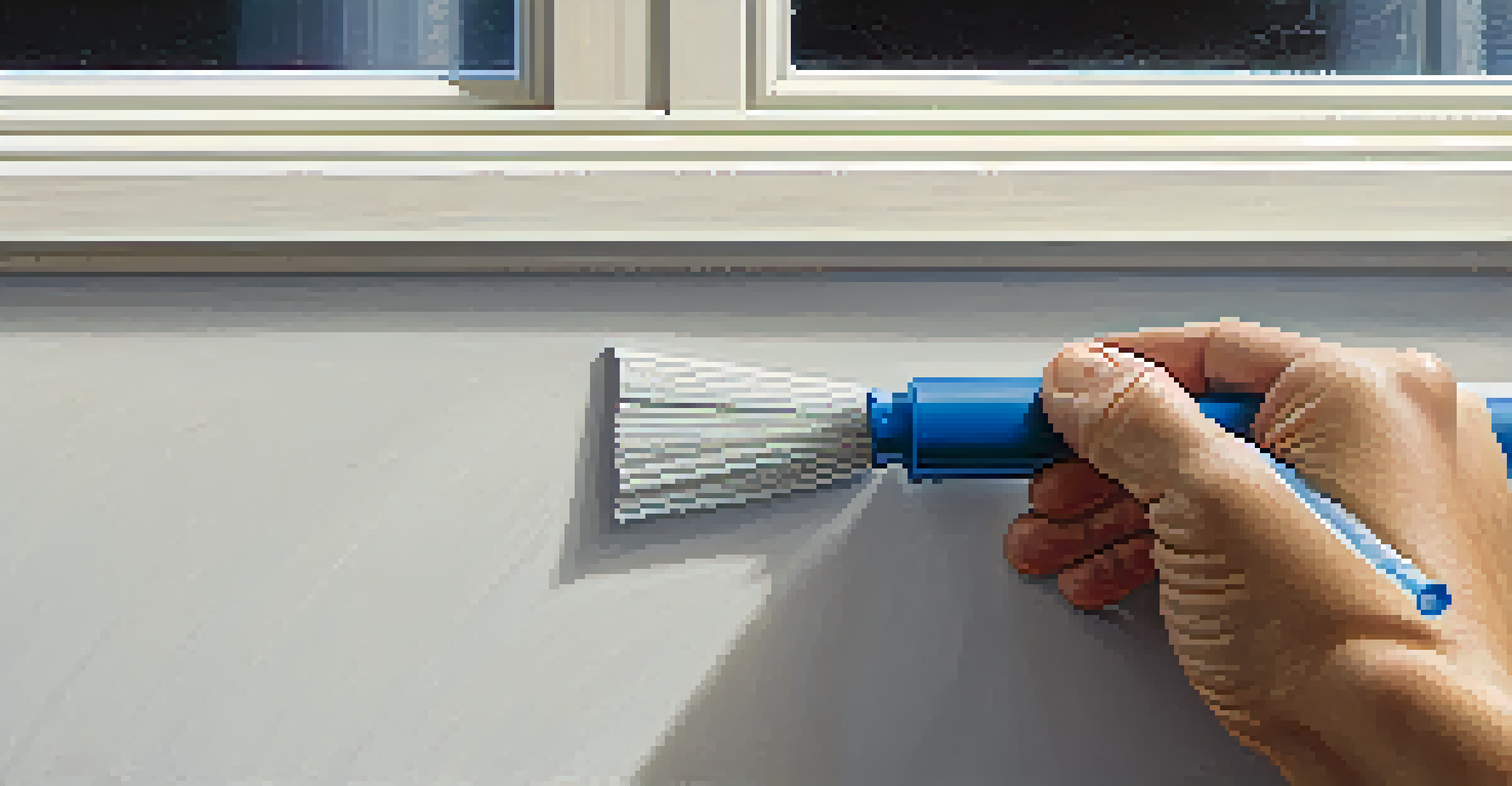Energy-Efficient Home Improvements: What to Prioritize First

Understanding Energy Efficiency and Its Importance
Energy efficiency means using less energy to provide the same service, like heating or cooling your home. This not only saves you money on energy bills but also reduces your carbon footprint, making it a win-win for both your wallet and the environment.
Energy efficiency is not just a concept; it's a way of life that can lead to significant savings and a healthier planet.
In a world where energy costs are on the rise, being energy-efficient has never been more crucial. It helps mitigate the effects of climate change while promoting sustainable living practices. By prioritizing energy-efficient upgrades, homeowners can significantly impact their energy consumption.
Moreover, energy-efficient homes tend to have higher property values. Prospective buyers are increasingly looking for homes that promise lower utility bills and a reduced environmental impact. Therefore, investing in energy-efficient improvements can pay off in the long run.
Start with Insulation: The Foundation of Efficiency
Insulation is crucial for maintaining a comfortable indoor temperature, preventing heat loss in winter and keeping your home cool in summer. When your home is well-insulated, your HVAC system doesn’t have to work as hard, which translates to lower energy bills.

Consider checking the insulation in your attic, walls, and floors. Many homes, especially older ones, may lack adequate insulation, leading to significant energy waste. A simple upgrade can make a noticeable difference in your home's energy efficiency.
Energy Efficiency Saves Money
By using less energy for the same services, homeowners can reduce their utility bills and lower their carbon footprint.
By investing in proper insulation, you create a barrier against outside temperatures. This means your heating and cooling systems run less, ultimately extending their lifespan and reducing maintenance costs.
Upgrade Your Windows for Better Energy Performance
Windows play a significant role in energy efficiency. Old, single-pane windows can let drafts in, making it harder to maintain a comfortable temperature without wasting energy. Upgrading to double or triple-pane windows can significantly reduce heat transfer, keeping your home cozy.
The best way to predict the future is to create it, and energy efficiency is a crucial step toward a sustainable future.
Besides improving thermal performance, new windows can enhance your home’s aesthetic appeal. Modern window designs come with a variety of styles and finishes, allowing you to boost curb appeal while increasing comfort.
Furthermore, energy-efficient windows often come with a special coating that reflects heat. This means that in summer, they keep your home cooler, and in winter, they help retain warmth, contributing to overall energy savings throughout the year.
Invest in Energy-Efficient Appliances for Long-Term Savings
When it comes to appliances, look for those with the ENERGY STAR label, which indicates they meet strict energy efficiency guidelines. Upgrading to energy-efficient appliances not only reduces energy consumption but also saves you money on your utility bills in the long run.
Consider replacing older appliances like refrigerators, washing machines, and dishwashers, which can consume significant amounts of energy. Newer models use advanced technology to operate more efficiently, leading to substantial energy savings over time.
Upgrade Insulation for Comfort
Proper insulation helps maintain indoor temperatures, reduces energy waste, and extends the life of HVAC systems.
Additionally, many energy-efficient appliances offer improved performance. For instance, an ENERGY STAR washing machine uses less water and energy while providing superior cleaning, making it a smart choice for both your wallet and the environment.
Enhancing Your Home's Heating and Cooling Systems
Your HVAC system is a major player in your home's energy consumption. Regular maintenance, like changing filters and cleaning ducts, can improve efficiency and prolong the life of your system. If your HVAC is over ten years old, consider upgrading to a more energy-efficient model.
Smart thermostats are another fantastic addition to boost your home's energy efficiency. They learn your schedule and adjust temperatures accordingly, ensuring you’re not wasting energy when you're not home.
Moreover, zoning systems can help manage heating and cooling more effectively. By controlling temperatures in different parts of your home, you can save energy in unused spaces without sacrificing comfort in occupied areas.
Consider Renewable Energy Sources for Your Home
Integrating renewable energy sources, like solar panels, can significantly boost your home's energy efficiency. By generating your own electricity, you can reduce reliance on the grid, lower your energy bills, and even earn credits for excess energy produced.
While the upfront cost of solar panels can be high, many states offer incentives and tax credits that make the investment more manageable. Moreover, advancements in technology have made solar energy more efficient and accessible for homeowners.
Consider Renewable Energy Options
Integrating renewable energy sources like solar panels can lower energy bills and promote a more sustainable lifestyle.
Additionally, renewable energy sources can contribute to a more sustainable lifestyle. By harnessing natural resources, you not only power your home efficiently but also support a cleaner environment.
Seal Air Leaks to Improve Your Home's Efficiency
Air leaks can be sneaky culprits behind high energy bills. Even small gaps around doors, windows, and vents can lead to significant energy waste. Sealing these leaks with caulk or weatherstripping can prevent conditioned air from escaping and keep your home comfortable.
A simple test to find air leaks involves using a lit candle or incense stick near potential leak points. If the flame flickers or the smoke blows, you’ve found a leak that needs sealing.

By addressing air leaks, you not only improve energy efficiency but also enhance indoor air quality. A sealed home keeps allergens and pollutants outside, creating a healthier environment for you and your family.
Smart Landscaping for Energy Efficiency
Did you know that landscaping can contribute to your home's energy efficiency? Strategically placed trees and shrubs can provide shade during the summer, reducing the need for air conditioning while allowing sunlight to warm your home in winter.
Consider planting deciduous trees on the south and west sides of your home. They provide shade in the summer and lose their leaves in the winter, allowing sunlight to warm your home when it's cold outside.
Moreover, native plants require less water and maintenance, making them an eco-friendly choice. By creating a smart landscape, you can enhance your home's energy efficiency while promoting biodiversity in your yard.